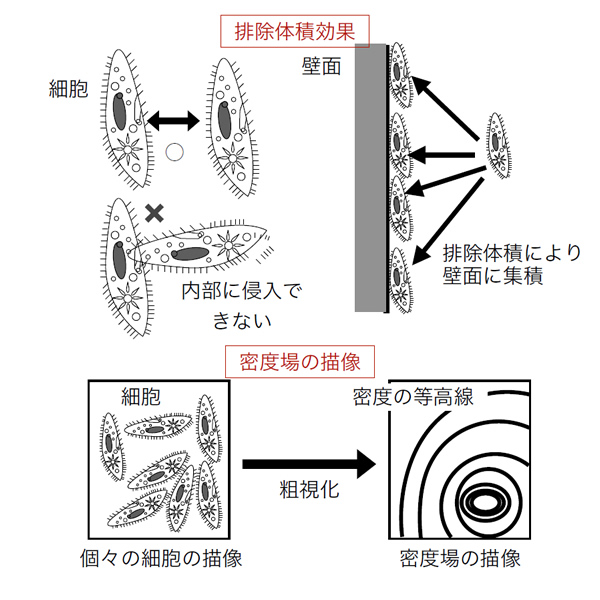Grant-in-Aid for Transformative Research Areas (A)
Publicly Offered Research:2024FY
Application of statistical mechanics theory to intelligence in single cell populations
- Principal
investigator - Akira YoshimoriDepartment of Physics, Niigata University
In this study, I clarify adaptive capacity for environments in the case that a group is formed by unicellular organisms such as ciliates. When unicellular organisms form a group, motions of cells differ from those of a cell existing alone because of interactions between cells. The interactions can also affect the distributions of cells. Through the motions and distributions, the interactions can affect adaptive capacity for environments. For an instance, one can consider the excluded volume effect due to the property that cells cannot overlap each other. The effect causes unicellular organisms to accumulate on a wall. In this study, I study the issue by a theory of the statistical mechanics. In particular, I examine the extension of the time dependent density functional theory used in the field of liquids. This theory focuses one on the density of particles, instead of each individual particle. Using the theory, one can calculate the time development of the density. I extend this theory by coarse-graining of equations of motion of unicellular organisms. If this theory is extended to apply to the group of unicellular organisms, one can clarify intelligence of unicellular organisms.

 Ethological dynamics in diorama environments
Ethological dynamics in diorama environments